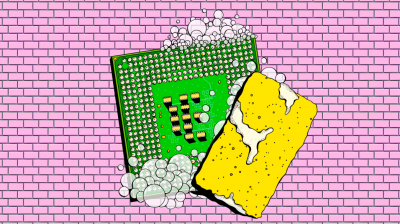Beyond the Ban: TikTok's Legal Battle and Future Prospects
As TikTok's CEO pledges to mount a legal challenge against a newly enacted US law threatening the app's existence over alleged data security concerns, the future of one of the globe's most downloaded platforms hangs in the balance. The recent bill, endorsed by President Joe Biden, sets a stringent ultimatum: TikTok has 270 days to divorce itself from Chinese ownership or confront a complete US ban. Dubbed a 'digital cold war' centerpiece by experts, TikTok stands at the epicenter of this escalating geopolitical standoff.
Under the legislation, the White House holds the power to extend the deadline by a single 90-day period, granting TikTok a temporary reprieve to serve its vast American user base. However, TikTok remains undeterred, vowing to contest the law in the American judicial system, arguing vehemently for the protection of free speech rights. Drawing confidence from a prior legal victory against a similar decree under the Trump administration, TikTok enters this legal fray with cautious optimism, though uncertainties linger.
The quest to find a suitable buyer for TikTok presents a formidable challenge, as potential suitors navigate regulatory scrutiny and financial constraints. Industry giants like Meta and Google's YouTube, already wielding significant market dominance, encounter formidable barriers to acquiring TikTok. Even Microsoft, with its vast resources and ownership of LinkedIn, faces rigorous antitrust scrutiny. Oracle, having previously engaged in negotiations during the Trump era, emerges as a potential contender, leveraging its expertise to address national security concerns through innovative strategies like Project Texas.
Absent judicial intervention, TikTok faces a critical juncture approximately one year from April 24, should the 90-day extension be invoked. At this juncture, TikTok risks eviction from US app stores, rendering it inaccessible to millions of users, with vital software updates and bug fixes indefinitely halted. As the legal battle intensifies and geopolitical tensions simmer, the fate of TikTok hangs in a precarious balance, with profound implications for the global social media landscape.
As Australia enforces a blanket ban on TikTok across all government-issued devices, the popular app finds itself at the mercy of geopolitical tensions, facing a gradual decline as updates cease and the specter of closure looms ominously. ByteDance, its parent company, grapples with the stark reality of an uncertain future, with potential options ranging from gradual obsolescence to outright closure.
The ban underscores broader apprehensions within China, where authorities resist setting a precedent of coercion against Chinese firms, particularly concerning prized assets like TikTok's coveted algorithm. Concerns mount over the ripple effect, with other Chinese companies potentially facing similar fates, amplifying anxieties within China's tech sector.
In a recent phone exchange between US President Joe Biden and Chinese President Xi Jinping, the TikTok ban emerged as a focal point, highlighting the geopolitical ramifications of such decisions. The conversation underscores the intricate interplay between technology, diplomacy, and national interests in the modern era.
Amidst this turmoil, Meta and Google emerge as frontrunners poised to capitalize on TikTok's potential demise. Meta's Reels and YouTube Shorts stand ready to fill the void left by TikTok's absence, steadily gaining traction in the US market. TikTok's apparent stagnation amidst uncertainty about its future only bolsters the prospects of its competitors, setting the stage for a potential reshuffle in the social media landscape.
In conclusion, the ban on TikTok by Australia and the broader geopolitical tensions surrounding the app reflect the intricate dynamics shaping the global tech landscape. As TikTok grapples with uncertainty and potential closure, the ramifications extend beyond mere app usage, touching upon issues of national sovereignty, corporate autonomy, and international relations.
The emergence of Meta's Reels and YouTube Shorts as potential successors underscores the competitive nature of the industry, with established players poised to seize opportunities amidst TikTok's turmoil. However, the implications stretch far beyond market share, encompassing questions of innovation, regulation, and the balance of power in the digital sphere.
As the saga of TikTok unfolds, it serves as a poignant reminder of the complex interplay between technology and geopolitics, shaping the future trajectory of the global digital ecosystem. Amidst the uncertainty, one thing remains clear: the fate of TikTok represents not merely the rise or fall of an app, but a pivotal chapter in the ongoing evolution of the digital age.







